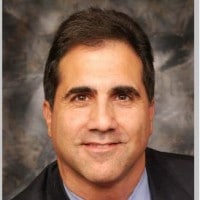FLASH FRIDAY is a weekly content series looking at the past, present and future of capital markets trading and technology. FLASH FRIDAY is sponsored by Instinet, a Nomura company.
Robert Iati has had a long career in capital markets, starting at Lehman Brothers in 1987, moving to Deutsche Bank in 1994, and then into consulting in the late 1990s.
Iati was quoted in a 1999 Traders Magazine article about order management systems. “In the U.S., the number of potential customers is large,” Iati said. “Overseas, usage of order-management systems is small, while the need is huge as markets globalize and integrate, especially in Europe.”
Traders caught up with Iati on what’s new in the past 22 years.
What was your role at Tower Group in 1999?
I was the Director of Capital Markets Research, managing a research product designed for our sell-side industry clients.

How has your career evolved since 1999?
In 2004, I joined my former colleague Larry Tabb to start up TABB Group. I joined as a Partner and was fortunate to have been part of it as it became the most well-respected advisory firm in the business. I then was recruited by Dun & Bradstreet to help drive its business in Capital Markets. And now I am the Managing Director of Burton-Taylor International Consulting.
How is the trading / fintech business different from 1999? How is it the same?
Wow. Where do I start? How much time do we have? The most obvious difference is in the reliance on technology and data in all aspects of the business. In 1999, electronic trading was in its infancy, and we’d just seen the introduction of ECNs (Electronic Communication Networks) that would ultimately cause upheaval of securities exchanges and open the door to the electronic matching, high-frequency trading, and quantitative trading algorithms that define the way we trade today.
I feel that one of the biggest differences in the market—one that few consider—is in its attitude. The industry in 1999 was upbeat and energetic, with a positive feeling about how the markets worked and an enthusiasm about the opportunities that lie ahead. Today’s environment is quite different. So many—both inside the industry and in the general public—view the capital markets industry cautiously, and some even negatively. The headlining volatility and downturns marked by the Dot-Com Bubble of 2001 and the Credit Crisis of 2008 have left deep scars and really changed the tone of the firms and their employees. Its activities are more heavily regulated and closely overseen, which has made these institutions operate in a much more cautious manner. From the outside, so many people look skeptically at the markets as ‘rigged’ and ‘only for the rich’, even questioning the value of capital markets as ‘gambling’. As someone that’s worked in the industry for 34 years, I find that to be sad.
What’s the same is the excitement brought by technology and how it enables so much innovation—in products, processes and operations. Even back then, with what might be viewed today as antiquated systems, we saw so much new technology development that sparked exciting opportunity. And we were able to see results super-fast. We still feel that today and that’s what makes us want to wake up excited to go to work every day.
What advice would you offer to your 1999 self?
Sell all your Lehman Brothers stock! I accumulated some stock while working at Lehman in the ‘80s and ‘90s which, of course, became worthless in 2008. My career advice to my 1999 self would be to follow a path that prepares you to be entrepreneurial, without depending on big corporations for your livelihood. Working in small companies allows you so much experience to grow your skills in all areas of business. Since 1999, many big companies have reduced job descriptions to have very narrow responsibilities, often out of fear of erring, and some seem to look for reasons NOT to do something new. I’ve found that, in my experience in smaller businesses, I’ve been exposed to so many different people, companies and processes where my colleagues and I have had to figure things—important things—as we went along. Like all decisions, some correct and some incorrect, but I became more decisive and well-rounded because of it and I wouldn’t trade that experience for any job at a large corporation.
How do you expect the trading /fintech business to evolve in the next 20 years?
I am a believer that the Capital Markets Industry is innovative. The next 20 years will see development of new financial technology products to meet the needs of a new profile of investors. We’ve entered a period where a record number of workers are leaving the work force—retiring—which will alter the dynamic of investment strategies to cater not only to the different needs of the retired community but also to the new entrants—the “emerging affluent” younger workers that are just beginning to invest. That demographic is more comfortable with technology and data-driven strategies, mobility and quant analysis. As it always has, fintech will innovate to conceive of and develop new tools to fit those demands.
What’s in your future?
Professionally, more research. Burton Taylor is expanding our research to include analysis of electronic markets and how they are changing the way securities are priced and data is used. Data is the common thread and, arguably, the most important element in all of fintech. We have been following the changes in the size of the market and its providers for many years. We’ll be adding a greater depth of study of the drivers of change of data use and provision and how it will influence the way we do business.





